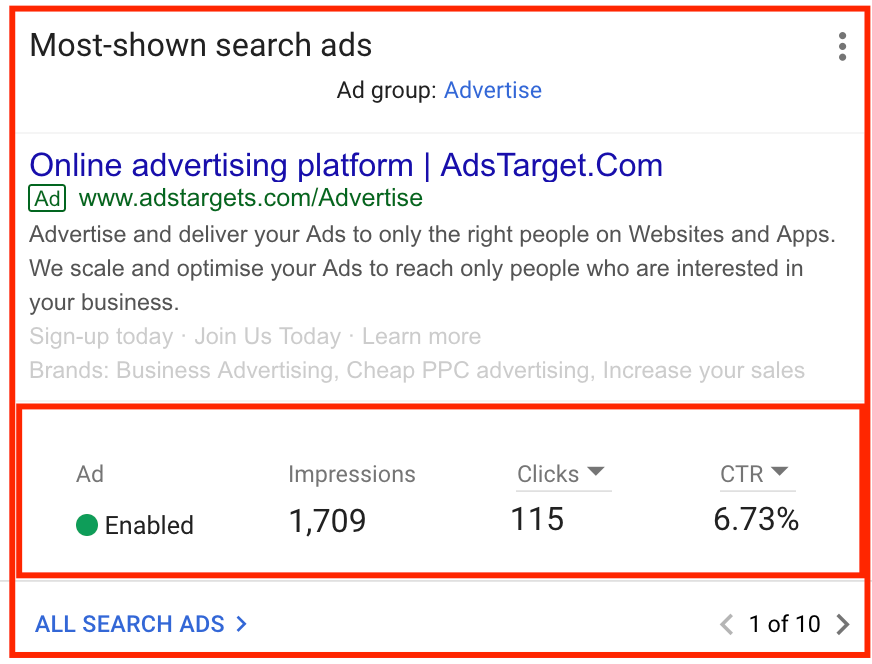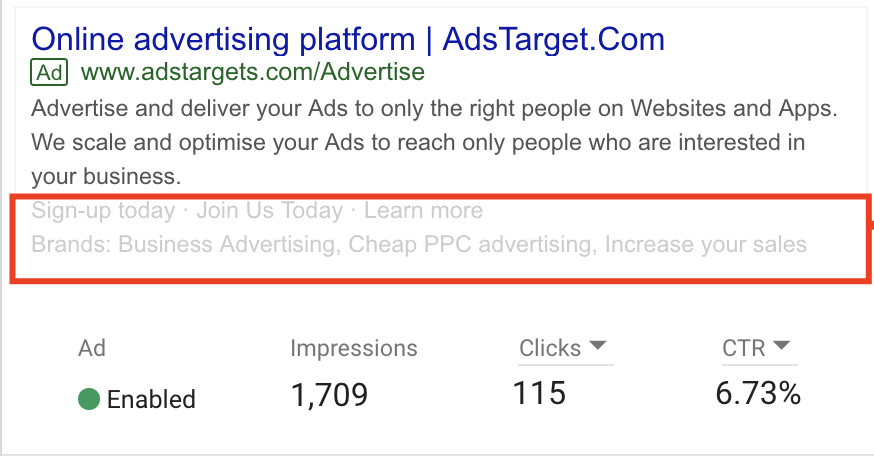Updated 25/03/2025
Cost-per-click advertising also popularly known as (CPC) or as others refer to it as Pay per click (PPC) is one of the most popular ways online businesses and digital marketers use for calculating the cost of clicks acquired through PPC advertising. It sounds very easy looking at the above description, however, there is more to it than just a form of advertising.
In recent years, Pay per click advertising to become more complex and competitive which means, online marketers need to optimize their games to rank their Ads.
It takes a combination of various inputs and factors to actually profit from Pay per click advertising while dramatically lowering the cost per click on campaigns.
Several digital marketers struggle to get their CPC to earn high ROI on their campaigns. The solution to this is understanding how the cost per click works.
In this blog post, we are going to explain Cost Per Click advertising thoroughly including all the strategies you need to implement and manage a successful CPC or PPC campaign.
Table of Contents
ToggleWhat is Cost Per Click Advertising?
Cost per click (CPC) is also known as Pay per click (PPC). In layman’s language, simply means the actual amount of money you pay per click when running an advertising campaign.
What is Cost Per click?: The actual amount of money you pay per click when running an advertising campaign.
The actual cost of every click is what it refers to as CPC. Some digital marketing experts actually refer to cost per click as the cost assigned to each keyword by search engines such as Google.
The truth is, If that’s true, no one will be able to pay for Google PPC campaigns. Even though there are more important factors to pay attention to when running a Cost per click campaign, however, it is still very important to understand how cost-per-click works especially in Google Ads.
How Does Cost Per Click work?
Cost per click is just one among many other metrics CPC platforms such as Facebook, Google Ads, and Bing use to evaluate PPC campaign performance.
The most popular CPC advertising platform is Google Ads also known as Google Adwords which this article is mostly centered at.
This is because has created a reputable system that delivers what the customer wants to see.
Google has developed into a monstrous Advertising platform because it shows the most updated, relevant search results to people all over the world.
It is estimated that Google process about 3.5 billion search queries every day. In my opinion, As of today, Google process over 5 billion search queries every day.
Each of these 5 billion queries returns results based on the most relevant keywords. This is how auction Ads are also determined to display alongside those search results.
How is Cost Per Click Calculated
Most ad networks display the average cost per click on various keywords. This does not reflect the actual CPC your Ads will be paying for but rather show you an average cost per click of those keywords.
In particular, Google Ads calculate your CPC by using two variables or factors as which are usually your closest competitor AdRank and Your Quality Score.
The formula for this is… Competitors’ AdRank is divided by your quality score plus .01 which gives you the actual CPC rate. See the image below.

As an advertiser, creating quality Ads should be one of your top priorities. This is because it helps you outrank even your competitors who have higher bids.
Google Ads considers several factors for ranking Ads which are Max bid, Competitor Ad Rank and your quality score all play significant roles in determining your CPC rates.

How to improve your CPC Rate and Maintain a High-Quality Score
After having an understanding of how CPC Ad work plus how CPC auction is calculated, Let’s see how you get cheaper CPC rates while maintaining a high-quality score.
It is extremely important for advertisers to maintain a high-quality score as it comes with several benefits. There are a couple of things that I will describe as a process since it’s not a one-time thing. Cost Per Click Ads requires constant optimization.
This is what this section is all about. Please follow the stages as explained below in order to get a high-quality score and maintain it.
#1. Add relevant Keywords to your Ads Headlines
Keywords are really important factors when it comes to ranking in search engines. In the same way, you use keywords in your content to tell search engines what your content is actually about, the same process is replicated in Google Ads.
When creating Ads, Use your most relevant keywords in your Ads headlines and in the description to tell Google exactly the types of audience you wish to target.
This helps improve the quality score of your Ads over time as you maintain a high Click-through rate (CTR).
Also, as some experts suggest, do some research on your competitor’s Ads and see the keywords they are using in order to have an idea of the kind of keywords they are using and use those as well.
Doing so will give you a competitive advantage over many of your other competitors.
#2. Make a Good Landing Page
Consistency matters a lot when it comes to online advertising. The final destination URL placed in your Ads should have reliable, easy-to-understand action buttons well placed.
The message on the ads should be consistent with what the Ads portray on your landing page or website. The advantage of this is that it leads your visitors to stay more on the page and take necessary actions such as signing up or making purchases.
The more time your visitors stay on your landing page, the better relevance and quality score your Ads will gain.
So in summary, make sure your PPC advertising message aligns with what you have on your landing page.
#3. Group Your Ads into Smaller Targeted Ad Groups
In 2018, Google added great features that allow advertisers to group Ads based on keywords making targeting more precise.
This feature helps advertisers have a better understanding of which Ad groups are based on those keywords are performing well and the Ad groups that are not.
See the example of Ad group in the image below

The data derived from each of the Ad groups makes it easier for advertisers to make decisions optimizing their Ads.
It presents you with the information required to pause or stop some Ads and spend more on the Ads that are performing better.
#4. Add Negative Keywords
Negative keywords are extremely important for saving your Ad budget and optimizing your Ad quality score which will lead to a better average cost per click.
Using negative keywords tells the Google Ads platform to avoid showing your Ads when queries that contain those negative keywords are entered into the Google search bar.
The impact of this is powerful to help get your Ads shown only when the right keywords matching your Ads are entered.
This makes you get more engagement based on CTR as they appear only on the specified keywords raising your overall quality score.
#5. Create Targeted Ad Extensions
Google Ad extensions are designed to make your Ads more relevant and engaging. It simply gives visitors more reasons to click on your Ads while positively impacting your Ad Rank.
There are a lot of Ad extensions we can create manually such as site links, Locations, Call-Out, Calls, messages, Sign-ups, apps, reviews, prices, structure snippets, affiliate locations, etc.
Google Ad extension has the potential to increase conversions and sales in many cases. In the end, they impact your overall Ad quality score.
#6. Create a Google Ads Conversion Tracker
A conversion tracker is another great decision-making tool advertisers need to take advantage of it.
Conversion tracker can be easily installed through your Google Tag Manager or direct installation of the code on your website or specific landing pages.



The least it does is collect data about the actions of your visitors such as Sign-ups / registration, Purchases, calls, etc.
This data is then used by Google Ads to determine which people are more likely to take those actions you need.
Conversion tracking helps increase your Ads quality score as it contributes to more precise targeting and ultimately higher CTR, lower Avg. CPC.
Cost Per Click Ad Networks
Cost-per-click ad networks is Ad networks that use Cost per click also known as CPC. We discussed a lot about CPC Ad networks but need to also discuss Ad Networks that use CPC as a pricing model.
The most popular CPC Ad network as we discussed extensively in this blog post is Google Ads. They simply have the largest share of CPC advertising online today.
This is simply why this post is mostly focused on discussing Google CPC advertising. Our Ad network AdsTargets a similar Ad network features to Google Ads.
Although our bidding system works a bit differently from Google’s bidding system. We have a similar CPC system. Advertising on Google Ads or AdsTargets Ad network for advertisers and publishers will give you almost the same results.
AdsTargets competing advantage here is the cheap cost of advertising and automatic Ad optimizations features. you can become part of us by joining the AdsTargets advertising Ad network.
Conclusion
Cost per click advertising will continue to evolve while positively and negatively affecting online advertisers. For those who are able to adapt will reap the benefits of CPC advertising while the ones that ignore it will face the consequences.
This post will be updated from time to time and we would like to know from you what you think about the post and suggest ways to make it better.













2 Responses
Can I Monetize my website through adstargets advertising?
Yes. You are welcome to monetize your website with AdsTargts.